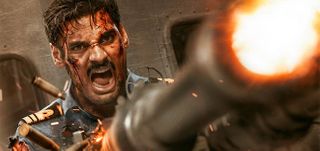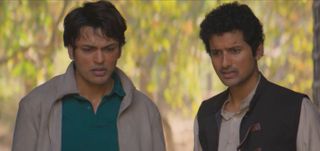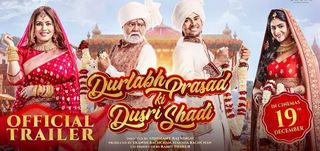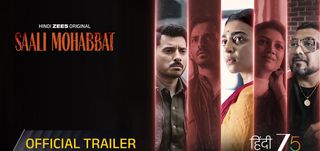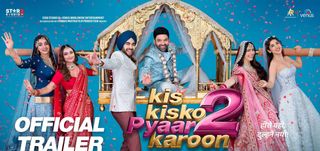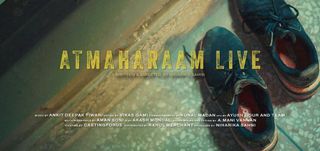Khuda Ke Liye Movie Review
Inaccurate interpretation of religious books like the Quran, the trauma of liberal Muslims in Pakistan and Muslim-bashing post 9/11 forced Pakistani director Shoaib Mansoor to take the bold step to make "Khuda Kay Liye", which in many ways is an eye opener.
Centred around Islam, the film from Pakistan has struck an instant chord with audiences worldwide because it touches upon issues that have given rise to biases against Muslims, thanks to Islamic fundamentalists.
"Khuda Kay Liye" also focuses on what being a modern Muslim really means in Pakistan.
While it is a tad lengthy, it works all the way thanks to Mansoor's narrative skills. And the movie drives home the point it wants to make without being overtly melodramatic.
"Khuda Kay Liye", which hit the screens here Friday, is the first Pakistani film to have a commercial release in India in more than four decades. It was released in Pakistan, the US, Britain and UAE last year.
The narrative revolves around a well-educated and affluent Pakistani family, whose members are based in three continents, and through them, the director connects incidents that take place in different places.
Mansoor (Shaan) and Sarmad (Fawad Afzal Khan) are brothers, both in love with music. They lead an ideal life with their parents in Pakistan. But Sarmad is influenced by a fundamentalist group lead by Mullah Tahiri (Rasheed Naaz). With his conformist views, he brainwashes the young singer and forces him to take up arms and join the jihad.
Unlike his brother, Mansoor (Shaan) refuses to be taken in by the cleric's ideas and moves to the US to pursue his music career, little knowing that he would become a victim of racial abuse there.
On the other hand, their cousin Maryam, (Imaan Ali) who lives with her father in Britain, becomes the victim of her father's conservatism and orthodox nature. She is tricked into marrying Sarmad, who locks her up in an unknown place near the Pakistan-Afghanistan border.
The film's climax sees an argument between Maulana Wali (Naseeruddin Shah) and Mullah Tahiri. Through Naseer's character, the director has tried to show how fundamentalists misinterpret the Quran and corrupt the mind of the youngsters, forcing them to turn against women and music, art and culture.
Focusing on the dilemma of young, liberal Muslims, who don't have any connection to terrorism, the film shows how the lives of these youngsters were turned upside down when terrorists struck the twin towers of the World Trade Center in New York on Sep 11, 2001.
It highlights how almost all Muslims were treated as terror suspects post the attack.
Mansoor's narrative is supported by strong performances by the entire cast. Rasheed Naaz's piercing eyes send a chill down your spine, while Shaan, who represents liberal modern Muslims, wows audiences with his emoting and brings tears to the eyes when he is being tortured in prison.
Naseer's stupendous performance enhances the film storyline.
Mansoor has an innate understanding of music, which is reflected well in "Khuda Kay Liye".
The film is a must watch.
OTHER REVIEWS











